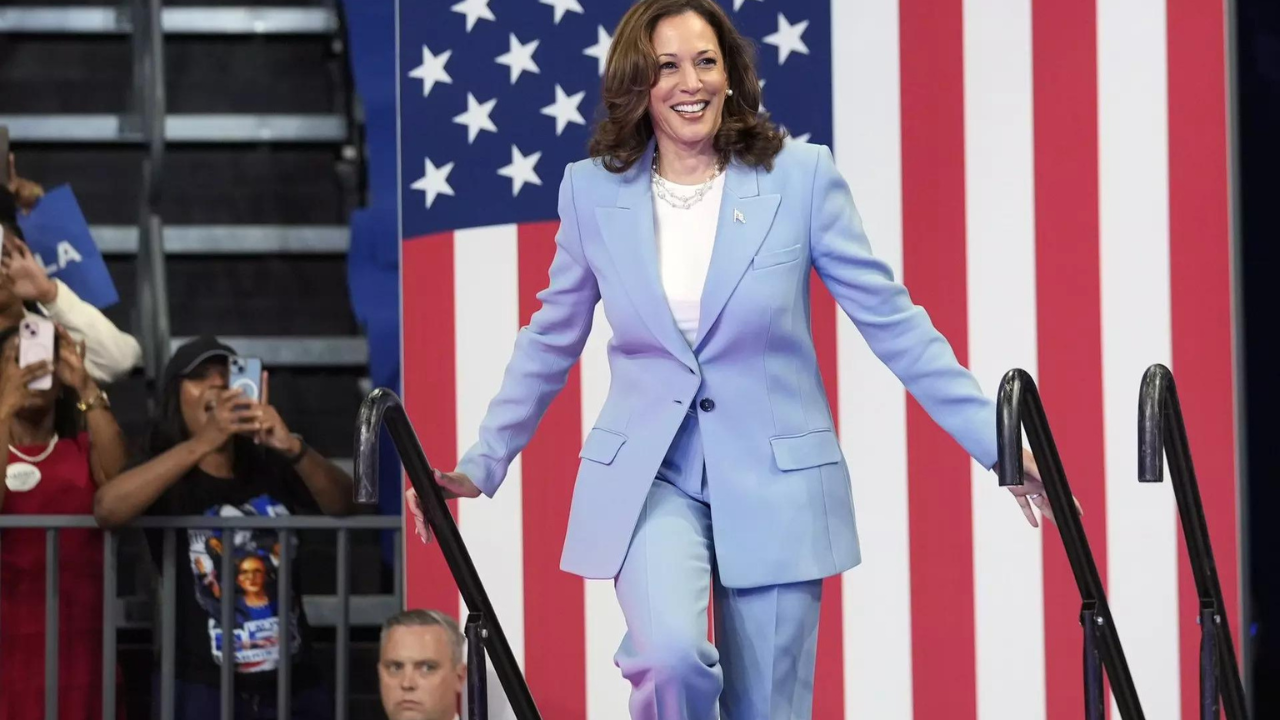Vice President Kamala Harris is positioning herself for the 2024 election by addressing past policy vulnerabilities and outlining her vision for governance. Following President Joe Biden‘s decision not to seek re-election, Harris has taken the lead on the Democratic ticket and is cautiously rolling out her policy platform, positioning herself against rivals like Donald Trump.
Traditionally, vice presidents follow the president’s lead, but Harris now has the opportunity to establish her policy agenda. The shift from being Biden’s second-in-command to leading the ticket has required a quick redevelopment of her policy positions.
Harris’s campaign website was updated after she took over Biden’s political operation in late July, removing the six-point “issues” page that framed the Biden-Harris administration’s stance against Trump. Her public addresses have focused on biographical details and broad goals like “building up the middle class,” without delving into specifics on contentious topics like federal abortion laws and assault-style weapon bans.
Harris has promised more details on her policy platform soon, with a focus on the economy and reducing costs. One notable proposal is to end federal taxation of tipped earnings for lower- and middle-income workers, a policy that echoes Trump’s 2024 campaign proposal. Trump criticized Harris for appropriating his idea, while the White House expressed support for the plan.
Harris has distanced herself from some liberal stances she supported during her 2020 presidential bid, acknowledging that her previous positions could be liabilities if not addressed. Her relationship with Biden, who endorsed her and transferred his political campaign to her, complicates her positioning.
Biden faced a similar situation during his campaign, introducing detailed policy ideas late in the race. Harris has embraced many of these proposals, including restoring abortion rights and raising the federal minimum wage, but these plans would require congressional support.
Harris’s campaign has framed her policy shifts and pragmatic approach as evidence of her ability to build consensus, a quality claimed to have led to significant bipartisan achievements during the Biden-Harris years. Trump’s campaign has ramped up attacks on Harris, portraying her as a radical liberal who has flip-flopped on key issues.
As the election season progresses, Harris’s policy vision and strategic positioning will continue to be scrutinized and contrasted with those of her rivals, particularly Trump.
Traditionally, vice presidents follow the president’s lead, but Harris now has the opportunity to establish her policy agenda. The shift from being Biden’s second-in-command to leading the ticket has required a quick redevelopment of her policy positions.
Harris’s campaign website was updated after she took over Biden’s political operation in late July, removing the six-point “issues” page that framed the Biden-Harris administration’s stance against Trump. Her public addresses have focused on biographical details and broad goals like “building up the middle class,” without delving into specifics on contentious topics like federal abortion laws and assault-style weapon bans.
Harris has promised more details on her policy platform soon, with a focus on the economy and reducing costs. One notable proposal is to end federal taxation of tipped earnings for lower- and middle-income workers, a policy that echoes Trump’s 2024 campaign proposal. Trump criticized Harris for appropriating his idea, while the White House expressed support for the plan.
Harris has distanced herself from some liberal stances she supported during her 2020 presidential bid, acknowledging that her previous positions could be liabilities if not addressed. Her relationship with Biden, who endorsed her and transferred his political campaign to her, complicates her positioning.
Biden faced a similar situation during his campaign, introducing detailed policy ideas late in the race. Harris has embraced many of these proposals, including restoring abortion rights and raising the federal minimum wage, but these plans would require congressional support.
Harris’s campaign has framed her policy shifts and pragmatic approach as evidence of her ability to build consensus, a quality claimed to have led to significant bipartisan achievements during the Biden-Harris years. Trump’s campaign has ramped up attacks on Harris, portraying her as a radical liberal who has flip-flopped on key issues.
As the election season progresses, Harris’s policy vision and strategic positioning will continue to be scrutinized and contrasted with those of her rivals, particularly Trump.
Source : Times of India






